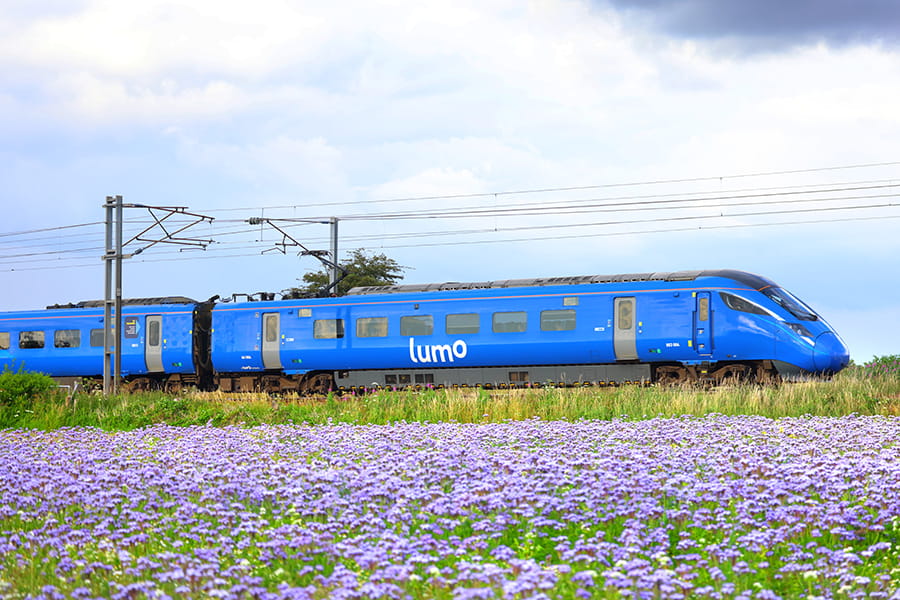Published 19 Feb 2025
FirstGroup’s pioneering open access rail operators Lumo and Hull Trains have published two new studies highlighting the positive effects of open access operations for both customers and the rail industry.
Open access operators like Lumo and Hull Trains don’t receive any government funding, with all their revenue self-driven. They typically operate in underserved places, with their loyalty only to their communities and customers.
The first study, “The Impact of Open Access Operators on Industry Revenue and Journeys”, compiled by specialist consultants Winder Phillips, assesses the success of open access operations on the increased number of journeys and the amount of additional revenue they have generated. Operators like Lumo and Hull Trains are independently regulated by the Office of Rail and Road (ORR) to ensure they don’t impact other major operators on a route.
The new study focuses specifically on Lumo and Hull Trains operations, but also considers the positive effects of the Grand Central service to Sunderland, using publicly available industry data. Faster rail journey times, direct journey opportunities, increased service frequency and fare competition are all mentioned as key benefits.
The report found that Lumo has helped to generate more than six million new rail journeys, encouraging people to switch from air travel to rail. For Hull Trains, celebrating its 25th anniversary this year, revenue on journeys from London to Selby, Howden, Brough and Hull increased by nearly 300% in its first ten years, generating approximately £30m in revenue for the railway. More recently, Hull Trains has seen passenger journey growth of 42% since 2018/19, 25% more than any other UK rail operator.
Meanwhile, the second study by Arup titled “Open Access Operations Paying Their Way” details the contributions made to the UK rail sector through the payment of industry charges. Open access trains do not pay the same charges as those contracts managed by the Department for Transport, but have a different charging regime in place. Data shows that in 2025/26, Lumo will pay around 10% more than LNER per train mile and around 35% more than Avanti West Coast. It also considers how open access operators are connecting communities, increasing job opportunities and reducing carbon emissions.
In December, FirstGroup and Hitachi Rail agreed to an order for 14 new five-car electric, battery electric or bi-mode trains.
The trains will be manufactured by Hitachi at their Newton Aycliffe site in County Durham, with the order to manufacture 70 new rail cars helping create certainty for the local manufacturing skills base, and the factory’s future. Delivery of the new trains is expected to commence in late 2027.
Martijn Gilbert, Managing Director of FirstGroup’s Open Access operations, said: “These studies clearly demonstrate how open access operators are paying their way, generating passenger journeys and revenue.
“We have a proven track record of finding and reliably operating in gaps in existing timetables, efficiently using spare capacity in the network between services including peak time commuter and freight trains, and which doesn’t increase the fixed costs of the railway or place any additional burden on taxpayers.
“As the Railways Bill Consultation is issued, it is important that this well-loved part of the railway can continue to operate and grow alongside Great British Railways. With our applications to expand, Lumo and Hull Trains able to quickly deliver further economic growth, playing an important part in a successful railway for the benefit of all rail users and the communities we serve.”
You can read the new reports here: Winder Phillips: “The Impact of Open Access Operators on Industry Revenue and Journeys” and issued by Arup: “Open Access Operations Paying Their Way”


